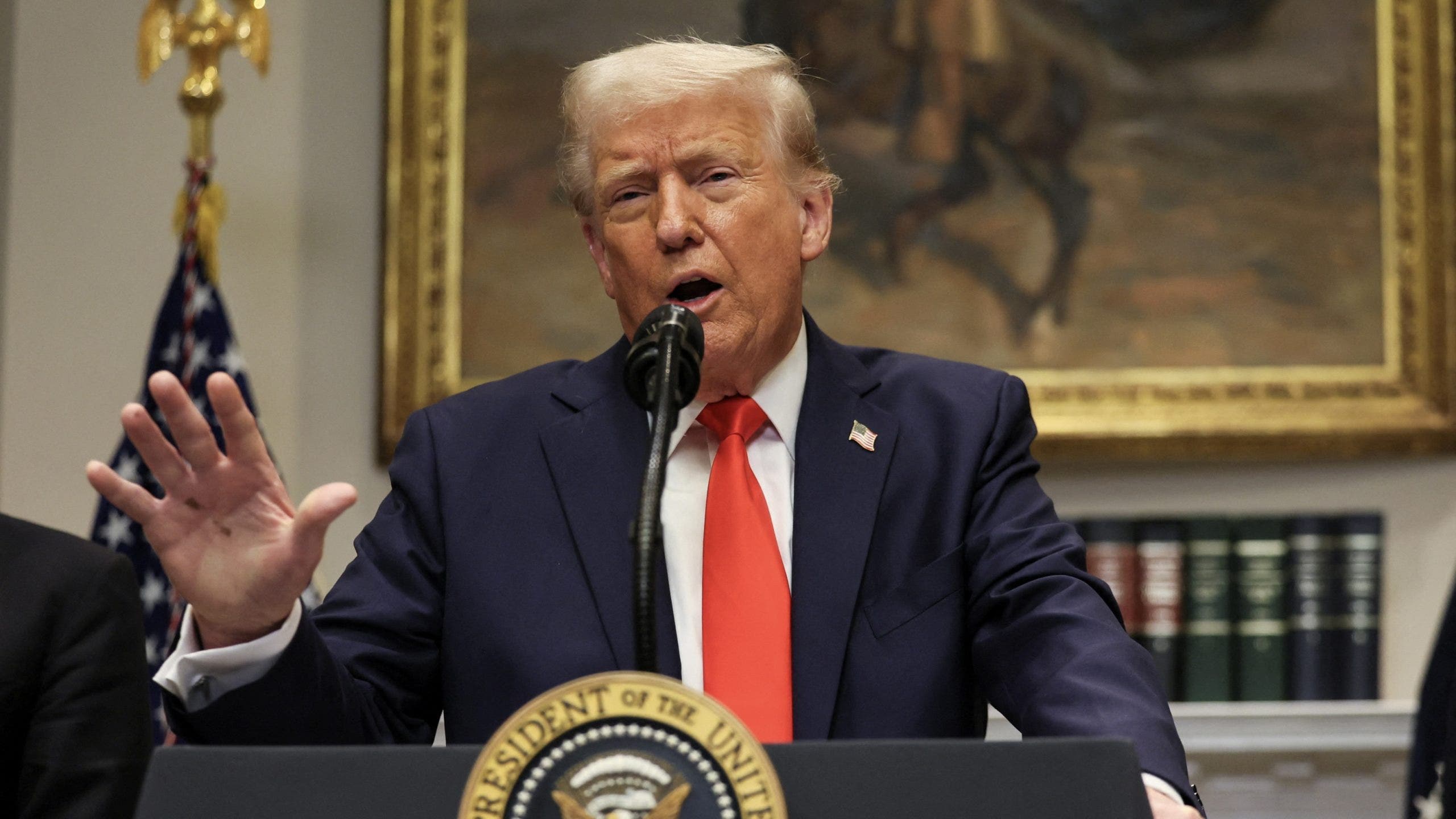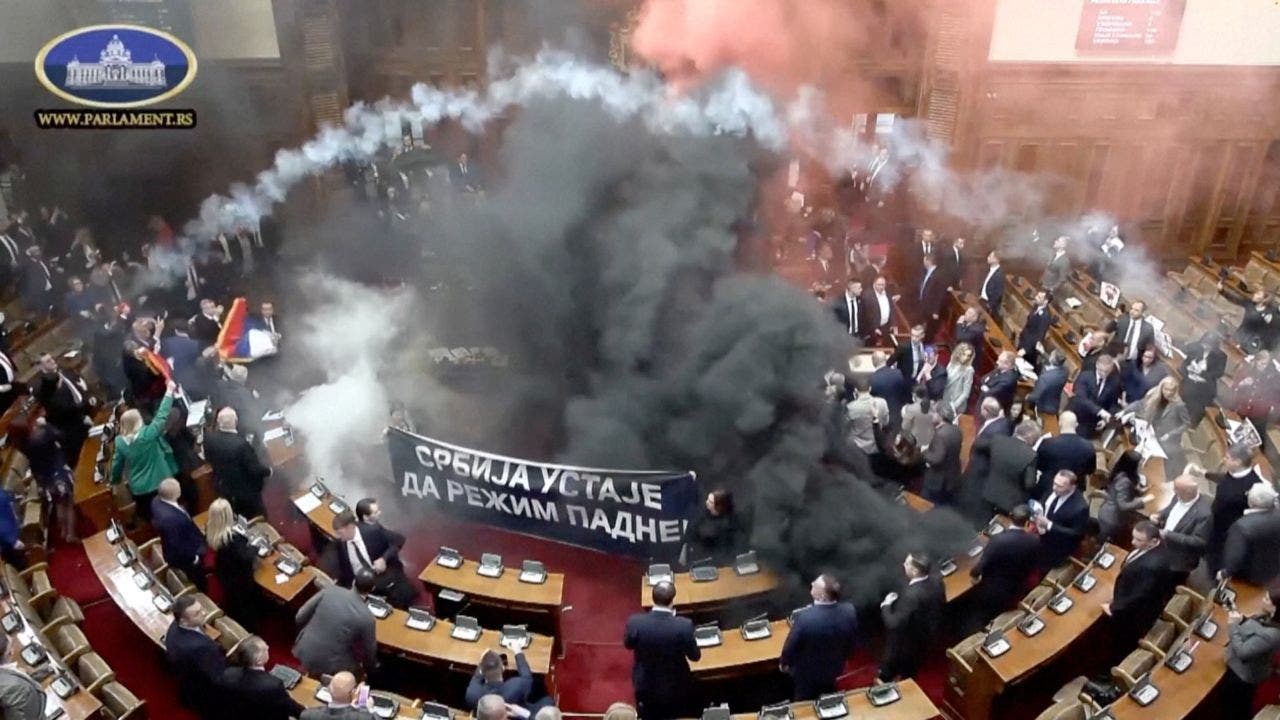Finally, it appeared, things were back to normal.
As nearly 3,000 delegates filed into Beijing’s Great Hall of the People on Tuesday for the opening of China’s annual legislative meeting, none wore face masks. Officials pressed together to shake hands and pose for photos. Around them, reporters and diplomats from around the world milled about the cavernous lobby, many invited back for the first time since the outbreak of the coronavirus pandemic four years earlier.
It was one of China’s highest-profile political stages, and the message being sent was clear: The country’s prolonged isolation was over, and it was once more open to the world and ready for business.
But normal in today’s China has a different meaning than before. And beneath the veneer of openness were signs of how much China has changed in the past four years, becoming more insular, more regimented, more tightly bound to the one-person rule of its top leader, Xi Jinping.
To be allowed into the Great Hall, where China’s most important political meetings take place, attendees still had to take a government-arranged Covid test. Unlike in previous years, when a report containing the government’s annual economic growth target was made public at the start of the opening ceremony, this year it was initially shared only with delegates and diplomats.
In perhaps the biggest departure from previous years, officials announced that China’s premier, the country’s No. 2 official, would no longer take questions at the end of the weeklong legislative session. It was the end of a three-decades-long tradition, one of the few opportunities for journalists to interact with a top leader.
“That’s where the premier’s news conference used to be,” one Chinese man in a suit pointed out to another in a low voice as they walked through the hall on Tuesday.
Guides with that kind of inside knowledge are important at Chinese political events like these, where the proceedings are so tightly choreographed that a casual observer might not know that things hadn’t always been this way.
At 9 a.m., as a light sleet fell outside, dozens of the delegates sat in neat rows onstage, against a backdrop of towering red curtains. In unison with the other delegates seated below them, they sang the national anthem.
Then, as the premier, Li Qiang, took the podium to deliver his summary on the government’s accomplishments in the past year, they bent dutifully over their paper copies of his report. This year reporters were given copies of the report only halfway through Mr. Li’s speech.
Above the stage, the auditorium’s sweeping balconies were filled with Chinese and foreign journalists positioning cameras, jotting down notes and peering through binoculars at the officials far below.
But many of the foreign journalists were allowed into the country only on temporary visas, as China has been slow to issue or denied long-term visas for many Western news organizations. It expelled many American journalists in 2020, and last year, even some foreign journalists who had valid long-term visas were not allowed into the legislative session.
In Mr. Li’s nearly hourlong speech, he offered repeated homages to Mr. Xi, who sat in the center of the second row. Mr. Xi, unlike everyone else onstage, barely touched his copy of the work report. He occasionally sipped from one of the two teacups arranged before him. (For most of his first years in power, Mr. Xi had only one cup at the opening ceremony, like the other delegates. But in recent years, Mr. Xi, who has steadily consolidated power around himself, has had two.)
Mr. Li did acknowledge the challenges China is facing, including a debt-laden real estate industry and weak demand from consumers. Those are all part of why China may be so eager to project openness now, as it seeks to attract foreign investors and reassure domestic entrepreneurs.
“We should communicate policies to the public in a well-targeted way to create a stable, transparent and predictable policy environment,” Mr. Li said.
But one had only to step outside the auditorium to see why many are leery of such promises. Information about and from the government has become more and more limited, as China has expanded its definition of espionage and cast even routine interactions with foreigners as potentially dangerous. Restrictions on both the Chinese and foreign press have tightened.
Days before the opening ceremony, the Foreign Correspondents Club of China said that a journalist for the Dutch broadcaster NOS had been pushed to the ground by police officers in a city in southwestern China while interviewing people there; the incident was also captured on camera. Across Beijing in the days before the meetings, police cars with lights flashing were stationed regularly at street corners, and volunteers in red armbands kept watch for potential troublemakers.
On Tuesday, officials had set up a series of question-and-answer sessions with a number of preselected delegates and government ministers — sessions that, officials said, helped justify the cancellation of the premier’s traditional news conference. In the lobby of the Great Hall, those officials fielded carefully worded questions from state media outlets about topics such as how Chinese-made cars could be promoted overseas, and how the Chinese people had benefited from government investments in water conservancy infrastructure.
One of the chosen delegates was from Henan Province, home to a major archaeological site called Yinxu. Called on to pose a question, a reporter from a Communist Party newspaper asked him, “Recently, Yinxu’s accomplishments in archaeology have attracted a lot of attention. When it comes to the protection of cultural artifacts, do you have any special feelings?”
Outside of that carefully curated context, attempts to interview delegates were far less successful. Several officials, approached as they were entering or leaving the hall, declined to answer even simple questions, such as whether they had submitted any legislative proposals this year, or even where they were from.
One typical exchange, with a delegate whose name tag identified him as Wang Wenqiang, from Hebei Province, went like this:
“Excuse me, did you raise any proposals this year?”
“Not this year,” Mr. Wang responded as he strode toward the auditorium, never breaking his stride.
“Have you raised proposals in the past?”
“Yes, last year.”
“What was it about?”
“People’s livelihoods.”
“Could you be more specific?”
“There’s someone waiting for me over there. Sorry,” Mr. Wang said. And with that, he disappeared.
Siyi Zhao contributed research from Seoul.





